
The Middle Ages
500 A.D. THE MIDDLE AGES
THE OLIVE OIL LOST IN HISTORY
In this historical period that lasted approximately 12 centuries, the world underwent battles, invasions, plagues, pests, droughts, floods, expansion of Christianity, emergence of Islamism, periods of great demographic density and population scarcity, deforestation caused by man and natural reforestation.Leaving aside the marked economic, social and cultural differences, suffice to look back and observe what has occurred in the last 100 years of our era to understand what may have occurred in Europe and in the world during the over 1,000 years spanned by the Middle Ages. This preamble has given an insight into the changes on the agricultural scene over time, with its moments of great and low food production, and also the lack of information about the production of olive oil and its use in food.
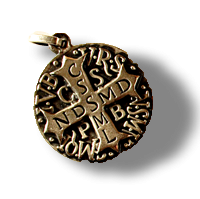
THE MEDIUM CALLED THE CATHOLIC CHURCH
In the so-called first Middle Ages or Late Antiquity, the expansion of Christianity, with its cults, offerings and sacred practices, was a great incentive and divulgator of the use of olive oil. On the other hand, the Roman state apparatus was, throughout the centuries, a divulgator, organizer and regulator of the cultivation under its dominion. Encouraging the production and managing the distribution of olive oil were, throughout the whole period of Roman domination, tasks of occupation. Due to this administrative capacity, the olive oils from Bética and the lands in North Africa, were able to reach the most outlying points of the Empire.The fall of the Roman Empire caused a significant interruption in this trade, decreasing the flow of olive oil from the regions of more abundant production to those where there were shortfalls. This also meant a reduction in demand with consequences for production. Another aggravating feature that led to cuts in olive oil production were the graves demographic questions that permeated the whole Mediaeval period. Contrasts of high and low population densities occurred in spaces of only a 100 years. Hilário Franco Junior, in his book A Idade Média, Nascimento do Ocidente, gives us an account covering the incidence of malaria and smallpox in conjunction with plague, besides wars, invasions and the Crusades. This demographic variation, in short periods of time, meant, above all, discontinuity. Families appeared and disappeared even before an olive tree reached its productive stage.
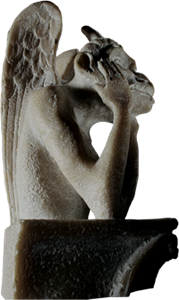
A REMEDY IN THE HANDS OF GOD
Even before one might imagine, the Bible already classified olive oil as a product of great commercial value a commodity: In this way Hiram kept Solomon supplied with all the cedar and pine logs he wanted, and Solomon gave Hiram twenty thousand cors of wheat as food for his household, in addition to twenty thousand baths, of pressed olive oil. Solomon continued to do this for Hiram year after year. The LORD gave Solomon wisdom, just as he had promised him. There were peaceful relations between Hiram and Solomon, and the two of them made a treaty. (I Kings 5:10 - 5:12) In a certain passage, the Bible speaks of the healing powers of olive oil. It is when Jesus, asked by a disbeliever about the paths to achieve eternal life, gives the example of the good Samaritan who comes across a traveller, hurt on the side of the road, and aids him by dressing his injuries and applying olive oil and wine. (Lucas 10:25 - 10:33)The soil treatment in the cultivation of olive trees is described in Exodus 23:10 - 23:11, when, through Moses, the Lord sends the children of Israel the following message: "For six years you are to sow your fields and harvest the crops, but during the seventh year let the land lie unploughed and unused. Then the poor among your people may get food from it, and the wild animals may eat what they leave. Do the same with your vineyard and your olive grove. He who teaches how to plant, teaches how to reap. In diverse laws described in Deuteronomy 24:20, we find: When you beat the olives from your trees, do not go over the branches a second time. Leave what remains for the alien, the fatherless and the widow.
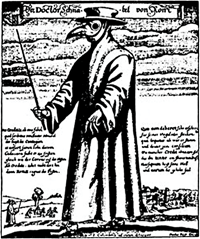
FEUDALISM DICTATES THE RULES IN THE COUNTRYSIDE
VIt is worth remembering here that an olive tree takes 5 years to start to bear fruit and its peak productivity is reached, on average, only after 20 years. Devastated, Europe saw, over the centuries, its great oil tree plantations succumb to the craziness of man and the vagaries of nature. This makes us understand why, in the centuries subsequent to the classical period, the references regarding olive oil are controversial, with reports of reduced quality and quantity.The feudal production system involved the land and its landlord, and on it, the serf, the peasant submissive to the feudal master. And this peasant was dedicated predominantly to animal husbandry and cultivation for the subsistence of his family and that of the landlord, to whom he paid a large part of his production. The landlord, in turn, paid taxes to the nobility for protection of his land, and to the clergy for divine protection. There is no landlord without land, nor land without a landlord. The productive lands were divided into two parts: one part - 1/3 of everything belonged to the landlord. The rest was divided into 3 fields, leased to the serfs who worked on these lands. What appears fundamental, from the point of view of those who wish to know all about olive oil, is the fact these lands, allocated to cultivation, were not continuous, but separate strips of 6 - 12 hectares in different fields. Paulo leased land from landlord Jorge, and the latter divided it into three fields. Each field was divided into various areas of 6 - 12 hectares. Thus, each serf possessed an area in field A, one in B and another in C. In annual rotation, each serf would cultivate two plots leaving one fallow. Over the years, this system proved to be an error, as it was expensive and did not allow for any type of cultivation that required more time to become productive, a typical case being the olive tree. The result was the adoption of cattle breeding and subsistence agriculture, where wheat, barley, rye and oats are more palpable and more immediatist than olive oil production.

THE KORAN, THE OLIVE TREE AND OLIVE OIL
During Mediaeval Times, without question, some facts marked the history of olive oil. With the passage of the Prophet Mohamed between 570 and 632, the Arabs began a significant period of religious expansion, involving conquests in Central Asia, reaching Indonesia, and in West Africa, culminating in the conquest of a great part of Spain, the Andalusia region becoming the centre of its administration. This domination (VIII - XV century) impregnated Spanish culture to such a degree that the Arab presence in life is evident even today.The Koran, the holy book of Islam, just like the Bible and the Torah, at various points, exalts the virtues of olive oil, demonstrating the Islamic predilection for this delicacy. Far from imposing any interruption, the Arabs received as a benefit of conquest, generations of Spanish farmers who had maintained the traditions and agrarian techniques inherited from past centuries. The descendents of those farmers kept up the tradition of olive cultivation, guaranteeing for Andalusia, throughout the Middle Ages, an outstanding position in terms of the world production of olive oils, albeit a small quantity in todays terms. Ibn Gálib, an Arab author issues the following opinion about the Andalusians of the Middle Ages: ...they seemed like the Greeks in their expertise in the catchment and channelling of waters, planting and grafting trees, cultivating vegetable plots and gardens, making them the best farmers in the world....
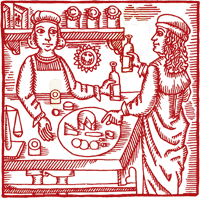
OLIVE OIL DISAPPEARS FROM THE MARKET
Historically, and till this day, shipping is one of the most important means of transport for world trade. In the XII century, the olive oils from Seville, Cordoba, Jaén, Valencia, Badajos and Coimbra were exported, albeit in insignificant quantities when compared with those of antiquity. Between the XI and XV centuries, the historians refer to ships loaded with cotton, Andalusian silk, Egyptian linen, Sardinian wheat, alum from Anatolia, Gascon wine, salt and dried fruits from Seville, but not one amphora of olive oil, neither sent from one country to another in the Mediterranean nor from the Mediterranean to other lands (Henri Bresc).Trade was incipient, currencies almost non-existent, and long journeys were considered temerous. Thus, little olive oil was produced, except in Andalusia and some regions of North Africa, which, till today, maintain their tradition in olive oil production. The reduction in production was of such an order that Italy, Syria, Greece, Turkey and other European countries saw their production in that period reduced to a level sufficient only for the consumption of the peasants and their landlords. In other words, what was not an essential food or needed daily, monthly or yearly, in small quantities, was not encouraged, and could not occupy field space. The olive tree and olive oil fell into the latter category, liable to being deemed superfluous in todays terms. In most kitchens, olive oil was substituted by lard or another vegetable oil.
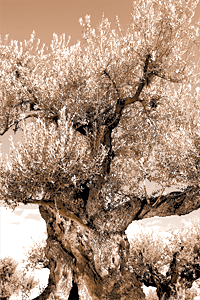
RE-EMERGING FROM THE WARS
Around the 11th and 12th centuries, some fiefdoms had production mechanisms, used by the serfs through the payment of some type of fee. Whether in the form of rent or barter, the lords offered their mill, their press and oven, which proves that the production of olive oil was carried out there, of course in almost domestic proportions. It was the slow start, of the resurgence of olive oil production at scale.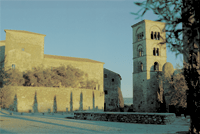
PORTUCALE ESTABLISHES RULES FOR OLIVE OIL
Despite having production of regional proportions, the cultivation of the olive has great importance in the life of Évora - Portugal, so much so that, in Regime da Cidade, 1392, cited by Geraldo Pereira in Documento Histórico da Cidade de Évora, enumerates some of the local police measures to be applied for the public good:
I- The cutting of the olive tree, green or dry, for firewood shall be punished with imprisonment, a fine and indemnification of the owner.
II- A cattle owner who lets his animals to stray into olive groves in the daytime shall be punished with a fine, and shall be sent in exile.
III- While there is olive oil belonging to others, the olive pressers are obliged to have closed storage, subject to a fine imposed by the Council# Board# and reparation for the owner.
IV- The olive pressers are obliged to make identical grindings and by direct measurement: 12 fangas (grain measure), and the right to 2 alqueires (land measure) for fanga.
V- According to the grinding , whether sartaam or syrup, the olive pressers salary is fixed in this manner.
VI- Cattle and pig corrals shall only be permitted outside the city, beyond the olive groves.
VII- Los corrales de ganado vacuno y porcino solo se permitirán fuera de la ciudad, más allá de los olivares.
VIII- because the olive trees can not bear fruits if the land is not tilled, which would be a great loss for the city and its citizens. But, in tilling the land, the cattle must be brought by hand by the herdsman.
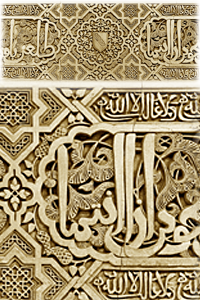
THE POETRY OF THE KORAN
The olive tree and olive oil are not only sacred in the Christian religion. The Koran makes innumerable references to the sacred trees and to the precious juice from its fruit. In Islamic tradition, the olive tree is considered the central axis that drives the world, the universal symbol of the Prophet Mohamed. The olive tree is associated to light, as it fuels the lamps in their homes and mosques, the most sacred spaces from the Islamic point of view. God is the light of the heavens and the earth; His light is as a niche in which is a lamp, and the lamp is in a glass, the glass is as though it were a glittering star; it is lit from a blessed tree, an olive neither of the east nor of the west, the oil of which would well-nigh give light though no fire touched it - light upon light! - (Koran Sura 24:35)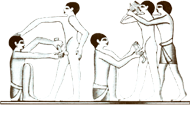
HISTORICAL REMEDY
The Talmud describes detailed techniques, such as that used in the treatment of imperforate anus. The practice was to anoint the place with olive oil and cauterize, and then make a small incision at the point where the anus should be (History of Medicine - Lyons/Petrucelli) The Moroccan tradition says that in every olive leaf ninety-nine names of God are written.EIn the Magreb countries (part of Morocco, Algeria and Tunisia), to ensure the fertility of the land, until today the peasants grease their ploughs with olive oil when preparing the land for planting. The production of olive oil reached moments of great scarcity during the Middle Ages. Once the medicinal use became frequent and efficacious, and knowing that the sick in their Convent would not have sufficient olive oil for their needs, Saint Clare placed a jug next to one of the external walls of their Convent and prayed to God to receive the noble ointment. The next morning the jar was found to be full.
When Spain and Portugal were still a single state, Wamba, the noble Visigoth conqueror, was travelling around the country when he received a message that the Goths had elected him king. Incredulous, Wamba declared that he would only accept the honour if the staff he was carrying sprouted roots and blossomed. Wamba drove the staff into the ground, and minutes after, it became full of olive tree branches. In honour of this marvel, a noble of the day ordered the building of an abbey at the place, and this became called the Olive Tree.
